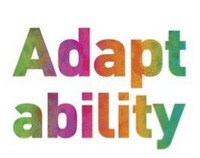Many sales leaders believe that having a sales process is important – as evidenced by the over 300 million references on Google to the term. But in most complex sales environments, having an over-prescriptive sales process can actually damage your chances of winning.
I’ve seen too many situations where a sales person is so keen to move to the next stage of the defined sales process that they fail to ask the questions or, (even worse) actually listen to the answers they have already been given that could give them clues about where the buyer was and what it would take to move things forward.
Just to be clear: in simple, low-value, single-call transactional sales environments where you can’t afford to employ smart sales people, having a straightforward and well defined sales process can help you make the most of the skills you employ in your organisation.
Flexible frameworks vs. rigid processes
 But in lengthy, high-value complex sales environments with multiple stakeholders, your sales “process” should be a flexible framework that incorporates the latest best practices but also allows an intelligent sales person to go off-piste from time to time as long as they have the ultimate destination in mind.
But in lengthy, high-value complex sales environments with multiple stakeholders, your sales “process” should be a flexible framework that incorporates the latest best practices but also allows an intelligent sales person to go off-piste from time to time as long as they have the ultimate destination in mind.
You might think of traditional, highly-defined sales processes as a journey between two places using well-defined and clearly-signposted highways. If the route you’ve chosen is blocked, there may not be many alternatives.
But you are better thinking of complex sales as either a cross-country journey in an all-terrain vehicle, or a cross-town taxi journey with many alternative side streets to dive down if the traffic ahead comes to a stop.
In both of the latter two cases, you still have a destination in mind – but you’re constantly reacting and adapting to the local terrain. You might even, from time to time, choose to retrace your steps in order to adopt a better route.
No “one best way”
There is no “one best way” – and that’s surely true of most complex buying environments. You have a destination, but you’re constantly evaluating your progress, and reviewing whether you need to adjust your strategy in order to make better progress.
What you need is a framework, a sense of direction and a compass. You need to have some smart questions up your sleeve, but even more importantly you need to listen, adapt and respond to what you learn from the prospect. You need a set of tools that you can call upon to dig yourself out of a hole or bridge a previously impenetrable obstacle.
You need to continually review your progress, and evaluate the options open to you. Faced with such complex terrain, having a plan certainly helps, but having the emotional intelligence to recognise where you are right now and adjust or adapt that plan is essential.
Aids to navigation
A rigid, sales-stage defined process won’t help. But neither will anarchy. And that’s where a well-defined framework with alternative options to navigate around obstacles and move things forward is so helpful.
The framework must be based not on a notional sales process but on facilitating the prospect’s buying decision process. Progress must be measured in the prospect’s terms (where are they in their journey?) and not on yours, and it’s vital that you can recognise the key milestones in their process.
The changing role of sales and marketing
Thinking in these terms causes you to recognise what you really need from your sales people and from your marketing department. Your sales people must be smart, creative, adaptable, good listeners and with high levels of emotional intelligence. They need to contribute to the collective learning that supports the framework.
You may think that this is a tough ask, but I’ve never heard an effective argument to the contrary – that you’d be better off hiring sales people to do a complex job when the individual clearly depends on following a pre-defined routine.
Marketing’s role changes, as well: their responsibilities need to embrace the creation of tools that help the sales person to diagnose where the prospect is in their decision making process, and programmes that help to eliminate or bypass the most common obstacles that could prevent progress.
Clear, simple and wrong
H.L. Mencken observed that “for every complex problem there is an answer that is clear, simple, and wrong.” Thanking that a rigid, prescriptive sales process will improve performance in a complex sales environment appears simple and clear, but it is unquestionably wrong.
It’s not just your sales people and your marketers that need to get smart…



